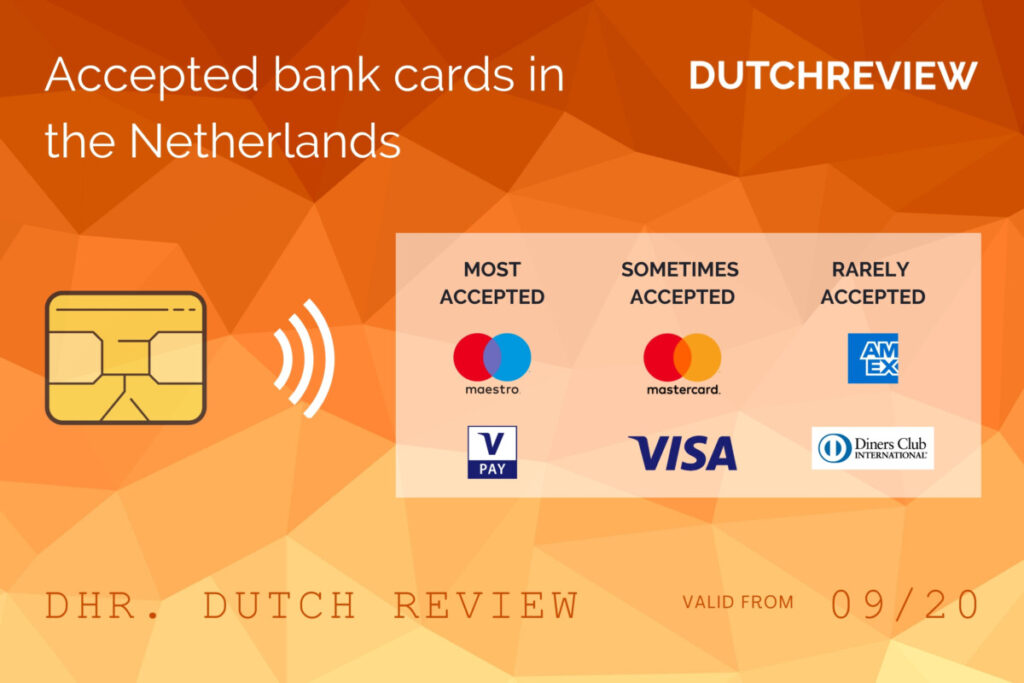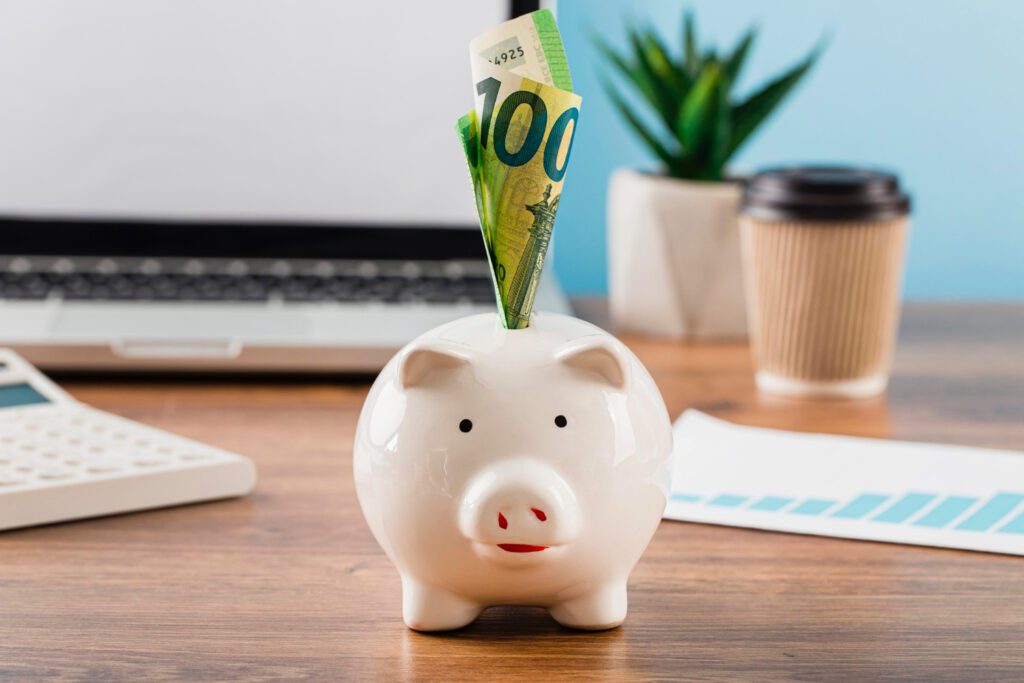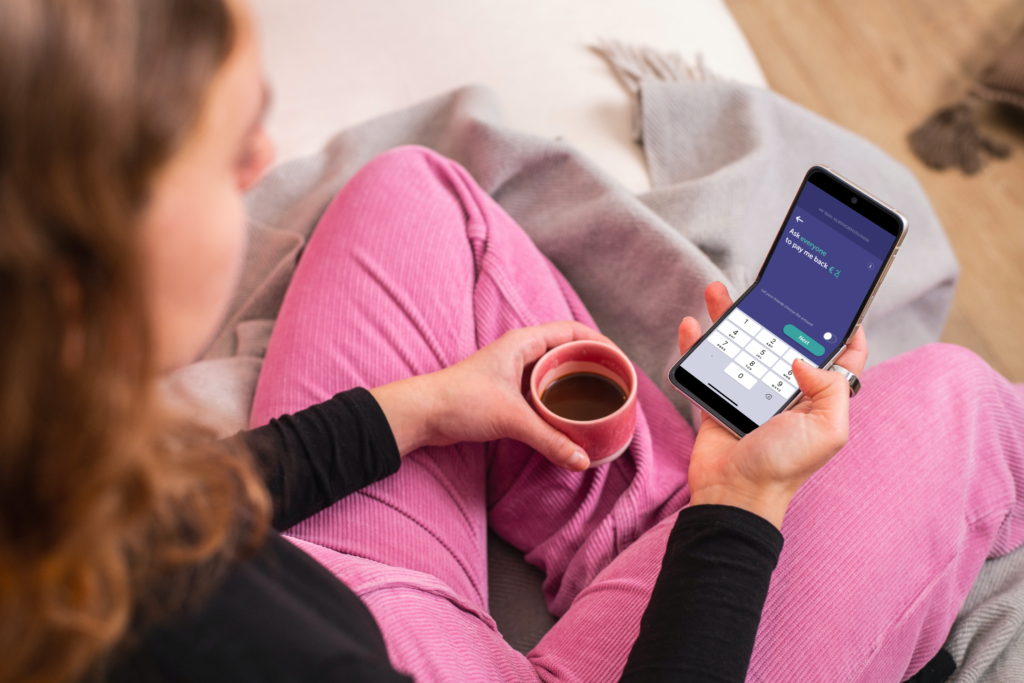You’ve moved to the Netherlands (or maybe you will soon), and it suddenly hits you — do you need to open a Dutch bank account? In most cases, the answer is yes!
However, finding your way around the Dutch banking world can be confusing for internationals.
READ MORE | All you need to know about banking in the Netherlands: debit cards, credit cards and online banks
Did you know, for example, that Dutchies are incredibly fond of cards and rarely use cash? But not just any card: in the Netherlands, debit cards are your golden ticket to pretty much everything.
Warning! Your international bank cards may not work in the Netherlands. To avoid any nasty surprises at the checkout, you’ll need a Maestro or VPay debit card. Luckily, you’ll get one of these if you open a Dutch bank account!
Here’s all you need to know about opening a bank account in the Netherlands!
This post might have affiliate links that help us write the articles you love, at no extra cost to you. Read our statement.
How to open a Dutch bank account
There are a few things you’ll need to have in order but once sorted, getting a Dutch bank account is super easy! Just follow these simple steps:
1. Choose your new Dutch bank and your account types 👩💻
When choosing your Dutch bank, it is a good idea to do a little research to find out which bank will best suit your needs. There are three major banks in the Netherlands: ING, ABN AMRO, and Rabobank.
Of course, the best banks for Dutchies aren’t necessarily the best banks for internationals.
Both ING and ABN AMRO offer English websites.
Although neo-banks like bunq and Revolut are built for foreigners — ING and ABN AMRO also offer support for English-language support and easy international transfers.
2. Gather your identification documents and BSN 📝
To open a Dutch bank account after you’ve arrived in the Netherlands, you’ll need to find the following documents:
- Proof of ID (passport or identification card)
- Proof of address (for example, your rental contract or a utility bill)
- Your Dutch residence permit or registration with the Foreign Police (If you are not an EU citizen)
- Citizen service number (BSN)
You receive your BSN (burgerservicenummer) when you register with your new Dutch municipality. If you don’t have a BSN number yet, some banks, like bunq or ABN AMRO, allow you to provide this later.
READ MORE | At these Dutch banks, you can open an account BEFORE getting a BSN
3. Attend your bank or sign up online 🤝
Now, let’s get to the good stuff. To open your Dutch bank account, you have a few options: attend your local banking branch or use the bank’s website.
Book a meeting at a local branch
To verify your identity when first opening an account, traditional banks like ING and Rabobank require you to attend one of their offices.
You’ll need to bring:
- Proper identification. You can bring a Dutch ID card, driving licence, diplomatic passport, service passport, residence document, or type W foreign national identity document.
- If you do not have a Dutch ID, you’ll likely need to bring your national ID and an additional document to prove that you either live, work, study, or own a house in the Netherlands. This could be an extract from the Dutch Personal Records Database (BRP) that you received when you got your BSN, an employment contract, proof of enrollment, or an eigendomsinformatie (ownership information document).
Let op! Always double-check with your desired bank what ID they prefer you to bring.
Open your account online
Want to open your Dutch bank account without having to change out of your pyjamas? You got it!
Some banks, like bunq and ABN AMRO, allow you to open a bank account in the Netherlands without attending the bank.
If you have an EU passport and a BSN, you can open an account at ABN AMRO via the bank’s mobile app.
Not from the EU? Then bunq might be your best choice! All you need to open a bank account with bunq is to download their mobile app and upload your (non-Dutch) ID — for the first three months, you don’t even need a BSN number.
4. Wait for your Dutch bank cards to arrive in the mail 📫
After opening your brand new Dutch bank account, you can sit back and wait for your card and bank account details!
Usually, it’ll take a week or so for everything to arrive (your bank card and the details you need to activate it are sent separately). They’ll typically arrive in the following order:
- Your bank card
- Your PIN code
- Your mini-scanner to use for internet banking and online shopping (if your bank uses this system — more on that below 😉).

The best Dutch banks for internationals
Okay, you know how to open a bank account in the Netherlands, now the only question is: Which bank should you choose?
As internationals who have tried and tested almost every bank around, these are the best banks for expats in the Netherlands:
- ING: Our top choice for internationals, ING is one of the biggest and most reliable banks in the Netherlands. With benefits ranging from powerful credit and debit card facilities to a handy mobile app packed with features, its ease of usage and availability of information in English set it apart from other major Dutch banks.
- bunq: A great choice for a digital bank, this neobank is packed full of features and is high-tech. You can open an account in five minutes, and you don’t even need your BSN beforehand.
- ABN AMRO: If you prefer a traditional bank, ABN AMRO is a winner. This brick-and-mortar bank is highly trusted in the Netherlands. You can open an account online (also with no BSN yet!).
- Revolut: Popular in Ireland, the UK, and now the Netherlands, Revolut is feature-packed and delightful to look at. Even though it’s international, you can get a Dutch IBAN.
- N26: N26 is another neobank with incredible features. Security is at the forefront of their design, and you can use sub-accounts to organise your money like a pro.
Things to know about opening a bank account in the Netherlands
You’ve opened a Dutch bank account and received your all-important debit card — now what? Here are a few handy things to keep in mind when banking in the Netherlands.
Costs of bank accounts in the Netherlands
Most banks in the Netherlands charge a monthly or yearly fee for having an account with them. However, if you’re a student, you can usually open a Dutch bank account for free (yay!).
READ MORE | Investing in the Netherlands: 6 great apps for getting into stocks
Other costs to consider are additional services such as insurance or a credit card. Also, keep in mind that there’s usually a small fee associated with international bank transfers.
Savings accounts in the Netherlands
Savings accounts in the Netherlands are easily accessible online and are considered very safe due to government deposit insurance. That means that if the bank fails, your money will be returned to you up to €100,000 per person, per bank.
That being said, we’ll be honest and tell you that most traditional banks in the Netherlands, like ING and Rabobank, have fairly low interest rates on savings.
Of course, specific terms and rates may vary, so it’s best to compare options before choosing a savings account.

However, if you’re looking for a savings account in the Netherlands with good interest rates, you have a lot of options outside of traditional banks, such as neobanks like bunq, saving tools like Raisin, and independent savings platforms like Trade Republic.
Authorising payments: QR codes and scanners
After opening your Dutch bank account, the fun can begin: Shopping! To purchase things online with your Dutch bank card, you’ll need to authorise your payment.
This can be done either by scanning a QR code with the banking app on your phone or via a handy little scanner provided by your bank.
Whether you use the scanner or your phone really comes down to personal preference. Some banks, such as ABN AMRO, send you their scanner automatically and require you to use it the first time you log on to their internet banking system.
(After this, you can switch to just using QR codes!)
Other banks, such as ING, use QR codes as the default but will send you their “ING scanner” if you request it. Having a scanner is useful if you don’t have a smartphone or tablet or if you prefer not to install the banking app on your phone.
Sending money in the Netherlands: iDEAL & Tikkie
The Dutch are famous for, well, going Dutch. However, instead of everyone pulling out their separate bank cards to pay for their share of the dinner, it’s common for one person to pay everything — and then send a bill to their friends later.
How can you do that? Simple! Send them a Tikkie.
READ MORE | Tikkie etiquette: the do’s and don’ts of asking for money in the Netherlands
Tikkie is an immediate money transfer system that uses a phone app to send a request for money. It’s probably the Dutch people’s favourite payment system, so you’ll be Tikkie-ing away in no time!

And what about when you go on an online shopping spree online or need to pay a bill? Then iDEAL is the way to go!
iDEAL is a simple way to pay online without having to enter all your card details.
Instead, the service prefills your purchase information into your internet banking environment for you to complete your purchase. All you need to do is authorise your shopping with a QR code or your bank scanner.
Sending money abroad from the Netherlands
Now that you have a Dutch bank account, you can, of course, use it to send money home from the Netherlands.
However, you’ll notice that the bank will charge you for international transfers (and sometimes a lot).
Luckily, there’s a different way for you to send money to and from the Netherlands for cheap!
Additional insurance with your Dutch bank account
When you open a bank account in the Netherlands, you’ll most likely be asked if you want to purchase any insurance policies together with your account.
READ MORE | 7 Dutch insurances you never knew you needed
Often, banks in the Netherlands offer everything from home to car to travel insurance. Take a look at what your bank has to offer and decide which (if any) are best for you!
Opening a Dutch bank account for your child
Do your children need a Dutch bank account? No problem! In the Netherlands, bank accounts for children are usually divided into two categories:
- “Youth” or “children’s” accounts are for kids up to 12 years old, and
- “Young person’s” accounts are for those aged 12 to 18.
The details for these account types differ a little depending on which bank you choose.
The good thing is that they’re all made to give your child some autonomy — while also giving you the ability to monitor their spending.

Setting up a Dutch bank account for your children is similar to opening one for yourself.
You can easily open an account for them online or at a branch, provided that you have your identification documents in order.
You may also have to sign an internet banking agreement for your child.
Joint bank accounts in the Netherlands
In the Netherlands, you can also easily open a joint account together with your partner.
Depending on your Dutch bank, you can open a joint account directly via their banking app, or you can arrange a meeting in your local branch.
Sometimes, banks offer packages to choose from when setting up a Dutch joint account, so check which services your bank provides.
Common terms when opening a bank account in the Netherlands
| Dutch | English |
| Betaalrekening/Betaalgiro | Transaction account |
| Pinpas/Bankpas/Bankkaart | Debit card |
| Spaarrekening | Savings account |
| Pinnen | Paying by card/withdrawing money from an ATM |
| Geldautomataat/pinautomaat | ATM |
| Credit card (English spelling) | Credit card |
| Transactie | Transaction |
| Verzekering | Insurance |
| Rekening | Account |
| Betalen | To pay |
| Lenen | To borrow |
| Hypotheek | Mortgage |
Opening a bank account in the Netherlands can be a daunting task — but if you know how to do it, it’s easily manageable.
You’ll also be happy to hear that most Dutch banks have plenty of experience with expats and will know just how to help you out!
What Dutch bank will you open an account with? Tell us in the comments!
Opening a bank account in the Netherlands: Frequently Asked Questions
Are there sustainable banks in the Netherlands?
There are! The most popular sustainable Dutch banks are ING, SNS, and Triodos.
If you want to know more about how banks in the Netherlands measure up against each other on things such as sustainability, labour rights, and animal welfare, you can use the Eerlijke Bankwijzer (Honest Bankpointer), which investigates how Dutch banks invest your money.
What banks in the Netherlands operate in English?
If you want a Dutch bank that operates in English, ING and ABN AMRO are your best choices for a traditional banking experience.
Both also offer their mobile banking app in English.
If you want a bank that’s specifically tailored to your needs as an international, bunq is the bank to go with! It’s fully online, in English, and made specifically for internationals.
Are credit cards common in the Netherlands?
Credit cards are not very used in the Netherlands. Most people will only carry around their debit card and leave the credit card (if they have one) for bigger purchases or for shopping abroad.
Can I get a credit card in the Netherlands?
Though not very common, it’s still possible to get a credit card in the Netherlands.
You’ll need to apply with your Dutch bank and provide proof that you receive a stable and sufficient monthly income. There are different options for Dutch credit cards, including student credit cards.
Is my money safe in Dutch banks?
Jazeker! You’ll be happy to hear that Dutch banks are known for their stability.
They are usually all covered by the Dutch Deposit Guarantee Scheme, which insures deposits up €100,000 per person per bank.

You can actually pay with a foreign creditcard (I use a UK Visa) at the train station when buying a ticket (in step 1 you can you need coins or a Dutch debit card)
They charge you 50 cents more for that , at the train stations. But you can pay with credit card in big stores such as V&D, H&M, Mediamarkt etc.
The funny thing is you cannot pay in the Albert Heijn with any credit card (not even a Dutch one), but in the Express ones in the train stations you can even use a foreign contactless one.
I love the Dutch banking system and unlike you I had my bank account immediately opened, right after I took my BSN document. I stepped in the first bank office I saw. NO Appointment needed!!!There was a nice smiley lady that offered me coffee and made funny jokes. It was in Utrecht center.
I think the credit card mentality is wrong and promotes a money illusion, meaning spending money you don’t have. You can also see the results if you compare Dutch economy with the American one. Almost all Dutch people that take mortgages are risk free for the banks. When I go to a big store and buy things by credit card, they look at me in a weird way. Once an assistant told me that only turists pay like that or if the value of the product is too high. So I eliminate my credit card use for only online purchases from non-Dutch webstores.
Eva that’s awesome! What banking system did you decide to use? I just arrived to Tilburg and am deciding between ING, ABN, and Rabobank. Do your fellow expat colleagues agree with you? Thanks so much!!
ABN Amro worked fine for me. They have very friendly internet banking in English! ING doesnt have a real english version but a manual to get started. In other words a pain. Rabobank the same. Just browse through their websites and see. Regarding products interests fees that you pay every month, they are similar for normal accounts. I dont know what happens with savings accounts.
Thanks!!
Thank you so much for this article. I thought I was going crazy, but this clarified so much. COVID has complicated opening an account. We have been trying since August.
just use revolut + N26!
Both are completly free. N26 gives you free Maestro card.
If someone would not want to accept your foreign IBAN just show this:
https://www.dnb.nl/actueel/algemeen-nieuws/nieuwsberichten-2021/nog-steeds-klachten-over-iban-discriminatie/
Hi
I have been told by multiple banks that it is not possible to have a Dutch bank account because I am from America (non-european) and there is some sort of anti-money laundering law that came into effect a few years ago. Are there any other Americans with a bank account here in the Netherlands on a temporary resident permit?
No,,,,you have to thank the US for that legislation. It puts a lot of pressure on the EU banks, since they have to report every transaction the the US.
With a long term resident permit you can, but it requires a lot more paperwork.
Dutch citizens living in the USA ( as legal aliens/ green card holders) have seen there Dutch bank account, they had for like 20 years, being eliminated because of this US money laundering law.
I dont really care what kind of cards they use because I always use cash, but I am not sure if this would be a problem, is cashs accepted there usually?
Thanks
I want to open a bank account online but it’s not giving me option
Please I one to open bank account
Out of the 4 listed banks the ONLY one Id recommend would be ABN. Bung charge a lot on a monthly bass and are a bit of a nightmare with customer service as is revolut. I also dont think Revolut is protected so u can lose yur money and they have bad reviewes for doig just that.
I personally use ING, never had an issue, my app is in english and customer service is easy. I use Wise for international transactions and dont have an issue anywhere.